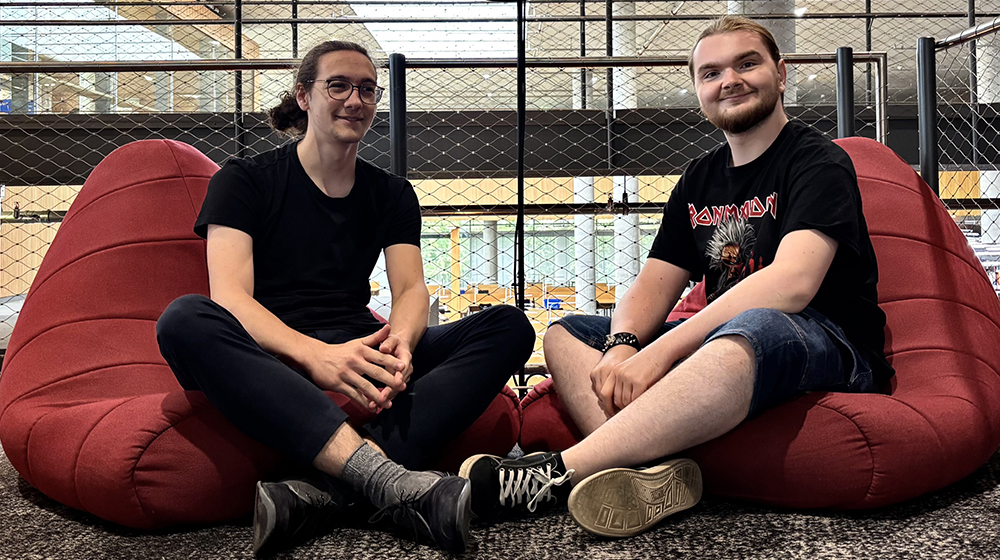Clear, future-oriented, holistic
New training concept at the university library
The university library has revised and updated its training concept for apprentices studying to become media and information services specialists (FaMI) in the field of library science. For the first time, it provides binding structures that enable young people to receive uniform and up-to-date training while also giving employees clear guidance on how to support trainees in the future. The evaluation-based adjustments thus ensure high quality.
Until now, there has been no consistent framework. Each department took a different approach, and some of the content was no longer up to date. The new concept puts an end to this, with clear content, goals, and methods now defined for each department. These are tailored to the respective year of training and the framework curriculum.

Bruno Kaufmann and Max Schäfer are in their third year of training at the university library to become media and information services specialists in the field of library science. Photo: Carina Kröber
Bruno Kaufmann is one of the first to try out parts of the new training concept. He was initially assigned to the university library's management team. Together with Max Schäfer, he began his final year of training in August 2025. Both appreciate the support they receive from their colleagues, their comprehensive integration into the university library and the OVGU, and the variety of tasks and topics they deal with. They are happy to be able to contribute their own ideas and thus help shape the program. The internships in all areas prepare them optimally for the future.
For the trainees, the new concept means above all transparency and quality in supervision. For the employees, it means reflecting on their own tasks and content. “The concept was developed as a joint effort. All departments contributed – and that is precisely what makes it strong and practicable,” says Carina Kröber, advisor to the library director.
The biggest challenge will be for all colleagues to consistently implement the concept in their everyday work. This requires exchange, mutual support, and a willingness to offer help when uncertainties arise—for example, in the communication of individual content. “Only if we reflect regularly and communicate openly will the concept remain alive,” emphasizes Carina Kröber.
A place for contemporary and valued education
With this new concept, the university library is positioning itself as a place of contemporary and appreciative education that values quality and sustainability. A consistent (re)orientation toward new content helps to avoid falling back into old patterns and prevents stumbling blocks.
Feedback from the trainees themselves will also be crucial to the success of the concept. Feedback on improvements will help to further refine the concept. The best indicator of successful implementation will be that the young specialists can immediately start in a permanent position at the university library or any other library without additional training.
The new concept is therefore aimed not only at trainees, but also at all employees: it provides a clear framework, creates commitment, and thrives on the fact that the team supports it together.
Text: INES PERL